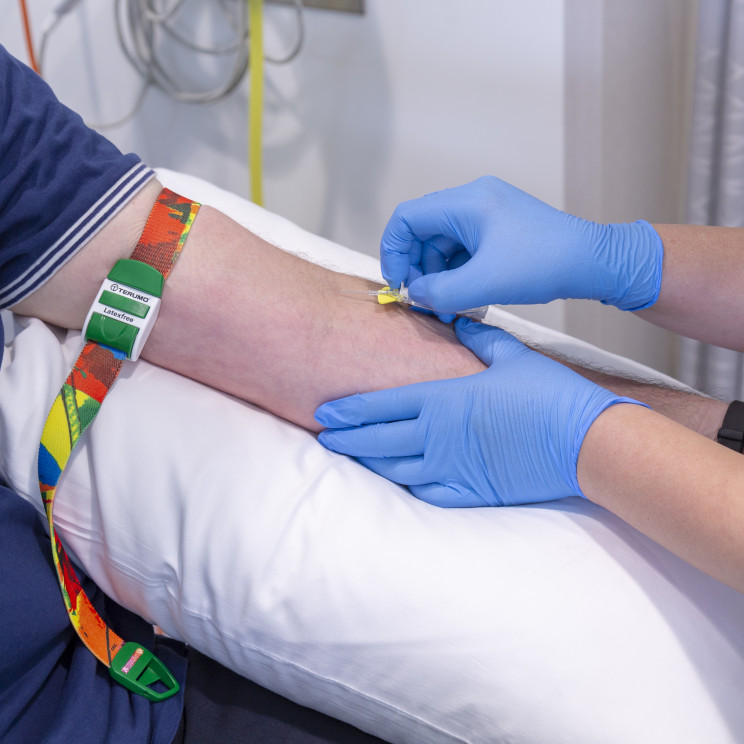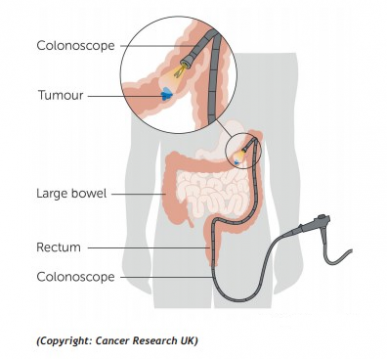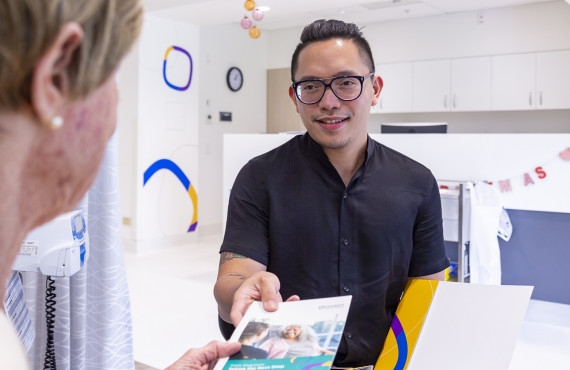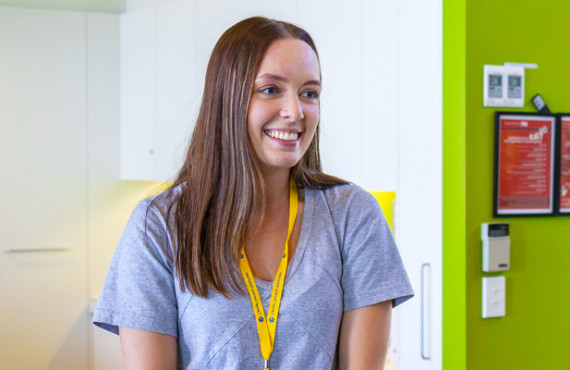If you have any symptoms of bowel cancer, they need to be checked by your doctor.
How is bowel cancer diagnosed?
If you have any symptoms of bowel cancer, they need to be checked by your doctor.
Your doctor will suggest several tests and scans to check for any abnormal changes.
These tests may include:
Tummy (abdomen) examination
The doctor feels the surface of your abdomen to check for any lumps.
Rectal examination
The doctor inserts a gloved finger into your rectum to check for any lumps, swelling or bleeding.
A test for blood in your bowel motions
A sample of your poo (faeces) is tested for blood (faecal occult blood). This is most commonly used as part of the national screening programme for bowel cancer.
Blood count test
A sample of your blood is taken to count the number of red cells in your blood. A low red blood cell level (anaemia) can be a sign of bowel cancer.
Carcinoembryonic antigen (CEA)
CEA is a blood test that measures a protein in your blood which is sometimes raised in people with bowel cancer.

Sigmoidoscopy
A specialist examines your rectum and the lower part of your bowel using a short tube. They may take a small sample of tissue (biopsy) during the procedure.
CT colonography (also known as virtual colonoscopy)
Your colon is emptied with a laxative, and air is gently pumped into your bowel via your anus (the entry to your rectum). CT scans are taken of your abdomen. If abnormalities are found, this usually leads to a colonoscopy.
Colonoscopy
A specialist looks at the entire length of your large bowel by gently inserting a long, flexible tube through your anus and rectum into your colon. You may be offered medication to help you relax during the colonoscopy.
They may take a tissue sample (biopsy) or remove any polyps (small lumps in the bowel's lining) for further testing.
Removing polyps at colonoscopy
If a pre-cancerous lesion, such as an adenomatous polyp of the colon or rectum, is found it may be removed during the colonoscopy.
Healthy tissue around the polyp will also be removed. This is called a local resection. It aims to make sure no abnormal cells are left behind.

If your test results show there are any cancer cells within the polyp, you may need another operation to remove any cancerous cells left behind
You will also need more tests to find out the type of bowel cancer and if it has spread to other parts of your body.
These tests include:
CT scan
A CT (computerised tomography) scan uses x-rays from different angles to make a 3D picture of inside your body and show smaller cancers than an x-ray.
MRI
An MRI (magnetic resonance imaging) uses magnets and radio waves to make a detailed picture of the inside of your body.
PET/CT scan
The scan begins by injecting a radioactive dye into your arm. The dye will attach to the cancer cells. You will have two types of scans that will find which areas in the body where the cancer may be.

National Bowel Screening Programme
New Zealand has a free bowel screening programme available to those aged 60 to 74 years.
Time to screenI Aotearoa nei, kua hōrapa tētahi hōtaka whakamātautau i te matepukupuku puku hamuti ki ia rohe, ki ia rohe, mō te hunga kāore e whai tohu mate ana. Mō te roanga ake o ngā kōrero, kōrero ki tō rata, me haere rānei ki te paetukutuku a te Manatū Hauora: timetoscreen.nz
After a diagnosis
If your test results show cancer, this can be a difficult time, and feelings can change from one moment to the next.
Everyone reacts differently when they learn they have cancer. There is no right or wrong way to feel.
Talk about your treatment options with your doctor, family and friends. Ask for as much information as you need. It is up to you how involved you want to be in decisions about your treatment.
Prognosis for bowel cancer
The prognosis is the likely outcome of a disease.
If the test results show bowel cancer, you may wish to speak with your treatment team about the prognosis.
The doctors will look at the type and stage of the cancer as well as your age and general health to give a prognosis, but no doctor can predict the exact outcome for you.

If you've been diagnosed with bowel cancer, knowing the stage of the cancer will help your treatment…

Bowel cancer is treated with surgery, chemotherapy, radiation treatment and targeted treatments.

We are here to help and support you and your whānau through cancer diagnosis, treatment and recovery…

How you can be open and honest with your family/whānau and friends about your cancer diagnosis.
We know that going through cancer is tough and can raise many questions. You are not alone.
We have health professionals to answer your questions and provide the support you need.
Get in touch
